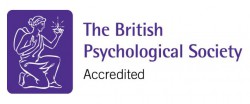Good practice guides for those working with dyslexia
It is mandatory for UK businesses to ensure that the rights of the disabled are not undermined in the workplace. Indeed, the Disability Discrimination Act, requires employers to make “reasonable adjustments” to enable disabled employees to undertake their duties effectively in the workplace. Where the person’s disability is physical, reasonable adjustments are easier to define, but when a person’s difficulty is related to learning differences, the action required isn’t so obvious.
According to most estimates, people with Specific Learning Difficulties such as Dyslexia and Dyspraxia make up between 5% and 10% of the population. People with learning difficulties are in the workplace. They have learned coping mechanisms to enable them to work around areas of difficulty.
Dyslexics and dyspraxics process information differently so they are often very good at thinking holistically and seeing the bigger picture, allowing them to more easily set things into context and anticipate potential consequences. They are often also good at identifying connections and patterns which can make them more flexible and open to different approaches, philosophies and trends, and allow them to think laterally to overcome problems and issues. In order to achieve success within ‘conventional’ systems of study and work that are largely based on the written word however, neuro-diverse people have to be determined, persistent, hardworking and resilient.
There are many things that businesses and management can do to facilitate a dyslexia friendly workplace. Making such changes benefits the entire workforce, not just people with specific learning difficulties, and helps non-disabled employees understand more about dyslexia. Janette Beetham from the British Dyslexia Association talks about the importance of the culture of the workplace, saying that a ‘people focussed’ and supportive workplace is likely to be pro-active and will do its best to support staff.
Looking for good solutions requires awareness of Specific Learning Differences (SpLD) throughout the organisation, i.e. line managers and HR personnel need to understand how dyslexia impacts the workplace and to work together to think of practical and reasonable adjustments that could be made to enable people to succeed. Solutions should be practical and often they can be quite simple such as peer support or assistive technology.
There is no “one size fits all” solution however, and managers should be aware that taking such a broad brush approach risks discriminating against an employee. So, what might an adequate and appropriate adjustment look like?
Here are a few examples to show that solutions need not be as complex as you think.
| Problem | Potential Solution |
| An employee keeps making errors when transferring information from one document to another | Provide two screens so that both documents can be seen simultaneously |
| An open plan office environment makes it hard for someone to stay focussed on their work | Provide headphones to allow them to reduce background distracting noise |
| An employee is slow to read manuals and finds it hard to take in the information when reading. | Use technology to read the text out loud. That way, the individual can listen to what is being said and thus focus on meaning. |
| Someone has weak organisation and planning skills | Work with a specialist tutor or perhaps a mentor to develop their time management and organisation skills |
| A team member finds it hard to keep up when tasked with taking notes in meetings | Ask them to record the meetings and to then use software such as Audio Notetaker to write up the minutes afterwards. Alternatively they might want to use a lightscribe pen which records as one writes. |
How can you be sure you’re making the “right” adjustments?
The short answer is that you can’t.
However if you’re flexible and willing to try different approaches, you’re far more likely to succeed. The key is to work collaboratively with the employee. It’s also helpful to get professional advice from organisations that specialise in Workplace Needs Assessments, or – if the employee has not been formally diagnosed – it may help to get a formal assessment of their learning profile which will form the basis of the Workplace Needs Assessment.
If you need more information about cognitive assessments, workplace needs assessments or reasonable adjustments, contact About-Dyslexia to discuss how we might help you further. Email us at enquiries@about-dyslexia.co.uk or call on 01992 589 159.


